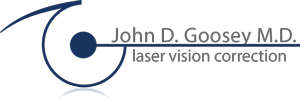While there’s no proven guarantee that one can prevent the development of cataracts, there are a few things that can be done that may limit, or mitigate, the top risk factors for this all-too-common vision issue. As we age, the risk of cataract formation greatly increases; however, with healthy lifestyle habits and diligent vision-care, it may be possible to avoid, or slow, the development of cataracts, and the need for cataract surgery. Read about simple proactive steps that can be taken to protect your vision.
Stop Smoking
Smoking is one of the top risk factors for cataracts. In fact, it is one of the most detrimental life habits for overall eye health. If you currently smoke, talk to your doctor about starting a smoking cessation program, or using prescription medications to limit the effects of nicotine withdrawal.
Maintain A Heart-Healthy Diet
Fresh fruits, vegetables, and natural whole grains are rich with a diverse array of powerful antioxidants and vitamins that support eye health. Surprisingly, you can get different combinations of these essential nutrients by simply opting to eat a colorful array of produce- eating a “rainbow” a day- is ideal. Key vitamins and antioxidants for eye health are most potent when obtained from foods eaten closest to their natural state. Highly refined, or processed, foods and OTC supplements may not provide the same nutritional benefits as natural whole foods.
Schedule Regular Exams with Your Eye Doctor
One of the best strategies for lowering cataract risk factors is to schedule routine visits with your eye doctor or cornea specialist. Identifying cataracts early-on is important to prevention and/or delaying the need for cataract surgery.
Keep Eyeglass Prescriptions Accurate
Be diligent about getting and maintaining the correct prescription for your eyeglasses or contacts. This is especially important for those who are advised to wear corrective lenses daily, rather than for reading purposes only.
Protect Eyes from Harmful UV Rays
UV Rays are considered another risk factor for developing cataracts. Although many people today are increasingly diligent about protecting their skin from sun damage, not everyone is equally diligent about preventing ultraviolet damage to their eyes. When spending any considerable amount of time outside on bright sunny days, be sure to wear protective sunglasses. You can also talk to your eye doctor about wearing prescription transition lenses that work like sunglasses when you are outdoors.
Limit Screen Time
Limiting the amount of time that you’re spending in front of brightly-lit screens is also important for preventing eye strain and blurred vision. Screen time includes time spent in front of the television, a laptop or PC, and mobile phones. Brightly-lit screens can be especially harmful to your vision if you’re regularly viewing screens in a darkened room or at night. While most people are required to spend most of their workday in front of a screen, it’s vital to moderate the amount of added recreational screen use as well.
To learn more about possible cataract prevention methods, or if you’re experiencing serious vision problems, it’s best to consult with the best, Houston’s premier LASIK surgeon and cornea specialist, Dr. John Goosey. Request an appointment online, or call 713-234-6134.





